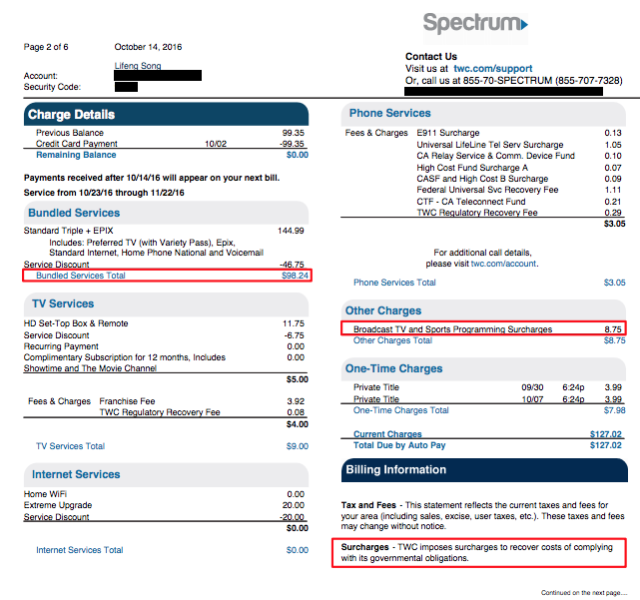?This is a clear and unambiguous statement that any line item on the bill that is labeled as a ?surcharge? is charged to recover costs imposed on Charter by the government,? the lawsuit says. ?Charter clearly and unambiguously calls the Broadcast TV and Sports Programming fees ?surcharges??in fact, the very name of the line item is: ?Broadcast TV and Sports Programming Surcharges.? Meanwhile, Charter provides no further explanation or definition of the Broadcast TV and Sports Programming Surcharges line item on its customer bills.?
Song?s complaint also has a transcript of a chat with a Charter customer service agent, who claimed that Charter pays the broadcast fee back to the government. The customer service agent apparently has only a limited grasp of English, but the chat transcript helps illustrate one of the ways in which customers are being misinformed about their bills.
The sports programming fee exists simply to reimburse Charter for the amount it pays networks to broadcast sporting events. The ?Broadcast TV? fee reimburses Charter for the amount it pays broadcast networks to retransmit their content. The fee is not mandated by the government, but US rules allow broadcast stations to demand carriage fees from cable companies. Cable companies don?t have to pay the broadcasters, but generally they do it so they can offer the channels to customers.
?[P]aying television networks for video content and transmission rights is a basic cost of doing business for a cable company,? Song?s complaint said. ?The reality is that Charter invented these Surcharges in order to deceive its customers by advertising and promising a lower price while actually charging a higher price.?
Song's lawsuit repeatedly refers to the Broadcast TV and Sports Programming surcharges as "bogus" and "hidden," since they subtract a portion of the standard monthly charges from the "services" section of the bill.







 Reply With Quote
Reply With Quote

Bookmarks